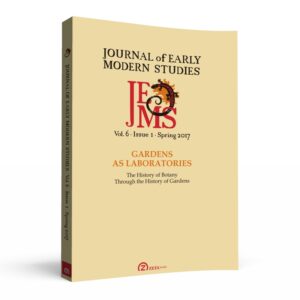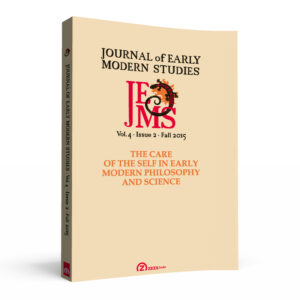TABLE OF CONTENTS
Johann P. Arnason: Introduction
Joel S. Kahn: The Inner Lives of Javanese Muslims: Modern Sufi Visions in Indonesian Islam
- Abstract: This paper draws on fieldwork in Indonesia and uses its findings to clarify questions about the differentiation of trends in contemporary Islam. Modernist and reformist currents are commonly distinguished from the Islamist revival that finds expression in political and sometimes violent activism; but a closer look at the field suggests a more diversified picture. A current of inner-oriented piety, akin to the Sufi tradition but also responsive to modern conditions and challenges, is documented through interviews with Javanese spiritual leaders. The methodological issues raised by this approach are not unrelated to those accompanying the ‘ontological turn’ in anthropology; in this case, they have to do with an esoteric Islam oriented towards the sacred and the secular worlds at the same time, critical of the legalism too often identified with Islam, and open to dialogue with other religions. On the historical level, the roots of this religious orientation should be sought in the mystical traditions that grew out of Islam’s encounter with Hinduism and Buddhism in the Indonesian archipelago.
Jörg Rüpke: ‘Religion’ as Conceptualised in a Roman Perspective
- Abstract: Definitions and theories of religion have been developed and discarded in an ongoing debate, which has been fuelled as much by post-colonial critique, theories of modernity, and postmodernist positions, as by new foci on old and new media. By starting from the challenges to adequately describe historical phenomena that could be fruitfully compared to religious action in other geographical and chronological settings, methodological options are developed and theorised with regard to an adequate, that is, fruitful model and theory of religion. More concretely, it is proposed to analyse ancient Roman religion as ‘lived ancient religion’ and to conceptualise this religion as religious agency, communication, and collective identity. The basis for this analysis is a recollection of the critique raised against an approach that had reduced ancient religion to ideological and ritual systems bolstering political and (in the context of Greek and Roman cities) ‘civic’ identities. Instead, I argue that the ancient evidence demands an approach that focusses on individual actors and their situational and strategic uses of religious communication. ‘Traditions’ are shaped and modified in such acts of ‘appropriation’.
Martin Fuchs: ‘Hermeneutik des Neuen’. Ruptures and Innovations of Religious Interpretation—Reflections from Indian Religious History: The Case of Bhakti
- Abstract: This paper discusses the Indian religious current known as bhakti, a cluster of movements and ideas with a long history traced back at least to the Bhagavad Gita, and confronts this case with problems debated in Western cultural hermeneutics. Bhakti is commonly seen as a devotional type of religiosity, opening up new dimensions of religious experience and inventing unconventional, even antinomian forms of expression; more recently, it has also been studied as a vehicle of religious individualization. The hermeneutical questions posed by this historical phenomenon have to do with both sides of the constellation known to social theorists as the double hermeneutic of social life, i.e. the meanings involved in and developed through the initiatives and exchanges of social actors, as well as the interpretive frameworks applied in scholarly analyses. The idea of social imaginaries constitutes a link between these two aspects. On both levels, the case of bhakti raises specific and central problems. It represents a particular pattern of orthodoxy and dissent, unfolding in contact and contest, and very different from the Western-based models of such configurations. For further hermeneutical reflection on this field, Paul Ricœur’s philosophy—with its emphasis on translation and “oneself as another“—seems better equipped than Gadamer’s work, which in the last instance subordinates understanding of the other to self-understanding.
Matthais Riedl: Terrorism as ‘Apocalyptic Violence’: On the Meaning and Validity of a New Analytical Category
- Abstract This article discusses the category of ‘apocalyptic violence’, which has been frequently applied in recent studies of terrorism. It shows that the category is not self-explanatory because apocalyptic literature is traditionally determinist and rather dissuades their readers from taking action. A historical overview demonstrates that revolutionary forms of apocalypticism emerge only in early modernity, when mystical and humanist influences undermined the determinist creed. A more differentiated concept of ‘apocalyptic violence’ is then tested using the example of several cases of modern terrorism. The result is that the category is meaningful for understanding certain trends within modern terrorism, especially as it captures the symbolic self-interpretation of terrorist groups more adequately than the categories extremism and fundamentalism. However, the article also shows that the category has clear limits and is not suitable for a comprehensive understanding of the motivational and ideological grounds behind terroristic violence.
Johann P. Arnason: Theorizing the History of Religions: The Weberian Agenda and its Unresolved Issues
- Abstract: The paper begins with a brief discussion of French approaches to religion, with particular emphasis on interpretations of and responses to Durkheim’s work. This survey of the French tradition then serves as a background to more detailed analyses of Max Weber’s work on the historical sociology of religions. Specific features of the Weberian project stand out in contrast to French conceptions; but to gain an adequate grasp of his problematic, it is necessary to think beyond his incomplete arguments and spell out the underlying or adumbrated themes. Although Weber’s civilizational studies are at first sight centred on ‘economic ethics’, it can be shown that the perspective shifts towards the question of religion and politics. Closer examination of theocracy, a marginal notion in Weber’s writings, but open to more complex interpretations, and of sacral rulership as a more general category, throws light on the religio-political nexus and its civilizational contexts. A further issue, less explicitly present in Weber’s writings, but relevant to his main concern, is the relationship between religion and philosophy. All these aspects should be discussed in more concrete historical terms than Weber could do a century ago, and the processes that led from archaic civilizations to the axial age are of particular importance.
Varia section
Natalie J. Doyle: Critical Introduction to Alain Caillé and Marcel Gauchet: An Exchange on the Place of Religious Meaning in the Self-Institution of Human Societies
Alain Caillé: On the Politico-Religious: Seventeen Embryonic Theses (Plus One) Written in the Spirit of Sociological Topics (translated by Natalie J. Doyle)
Marcel Gauchet: The Political and Religion: Twelve Propositions in Reply to Alain Caillé (translated by Natalie J. Doyle)
Alain Caillé: New Theses on Religion (translated by Natalie J. Doyle and George Renuka)
Robert Legros: Cornelius Castoriadis and Claude Lefort: The Question of Autonomy (translated by Steve Rothnie)
- Abstract: The author compares the different interpretations by Castoriadis and Lefort of democratic autonomy. For both, autonomy involves questioning all pre-given meaning. Castoriadis, while rejecting any law of historical progress, regards the history of autonomy as the development of a movement which commenced in a limited political domain in ancient Greece and expanded in other domains in Western Europe from the 11th century on. In theory, it has eliminated pre-given meaning, but has remained stuck in a liberal oligarchy, bogged down by a tide of insignificance. It remains to further the project of autonomy to the point where a truly autonomous society will be able to accept as such the “Abyss” (the “Chaos”) it experiences without hiding behind replicas such as those provided by religion. Lefort, on the other hand, while similarly accepting democracy’s desire for autonomy, believes the source of its principles are enigmatic and it will continue to remain open to the authentic human experience of radical transcendence even without God. He believes that the threat of relativism can be avoided as democracy is more just since it allows its members to be more open to this radical transcendence than other forms of society.
Roger Savage: Emancipatory Alternatives, Sites of Resistance: Social Subversion, Political Contestation, and Dystopic Imaginaries
- Abstract: Social opposition to instituted policies and practices marks the sites of resistance that populate the contemporary political landscape. Animated by the prospects of a better and more just world, the emancipatory ambitions of social and political movements bring to the fore discrepancies between ideologically congealed power relations and habits of thought and the subversive function of utopian expectations. Paul Ricoeur reminds us that our participation in society is invariably punctuated by our experiences of reality’s noncongruence with imaginative alternatives we can project and upon which we can act. After explaining how literary fictions open spaces for reworking reality, I set out the imagination’s analogous power on the political plane. The struggles with which social and political movements are engaged seek to transform established conventions. Hence, like literary works, these movements aim at refashioning the existing order of reality from within. Protest movements attest to how struggles for recognition combat systemic injustices by holding out the prospect of a different and better future. Consequently, these movements exemplify the power that springs from individuals acting in consort, as evidenced by recent protests against the Trump administration. Conversely, violence destroys power. In view of the way that future expectations animate the force of the present, I therefore argue that dystopic representations of authoritarian regimes in Margret Atwood’s The Handmaid’s Tale and George Orwell’s 1984 fulfill a critical, social function as apocalyptic harbingers of political corruption and deceit. As such, these dystopian novels intensify the force that the present has as a time of crisis and decision.
Chiara Bottici: Who Is Afraid of The Myth of the State? Remarks on Cassirer’s Unpublished Manuscript
- Abstract: Now that we possess the Nachlass version, we can finally state it: Cassirer’s The Myth of the State has been massacred, large parts have been omitted; entire sections moved around, the fundamental thesis deeply altered. The 1946 edition of the text was an editorial crime. Instead of the neo-Enlightenment intellectual who, when faced with the Nazi’s recourse to myth, had started to question the very idea of a Western road from mythos to logos, the 1946 edition transmitted to us the text of a self-confident intellectual carrying the torch of the Enlightenment even in front of an event that could have potentially extinguished it forever. Why has the text been massacred? When? And by whom? The main suspect cannot but be Charles Hendel, who published it posthumously in 1946 by stating: ‘I hope I have not altered anything that would have mattered to him.’ By perhaps it was not a murder, but rather a suicide: perhaps Cassirer’s himself has killed his own self-criticism. In both cases, the motive could have been the desire to preserve Cassirer’s intellectual coherence, and thus reiterate that opposition of mythical versus rational consciousness upon which both Cassirer’s philosophy and philosophical self-narrative of the West ultimately rests. But if that is the case, then it does not matter who actually assassinated the text, because we are all, in a way or another, accomplices.






